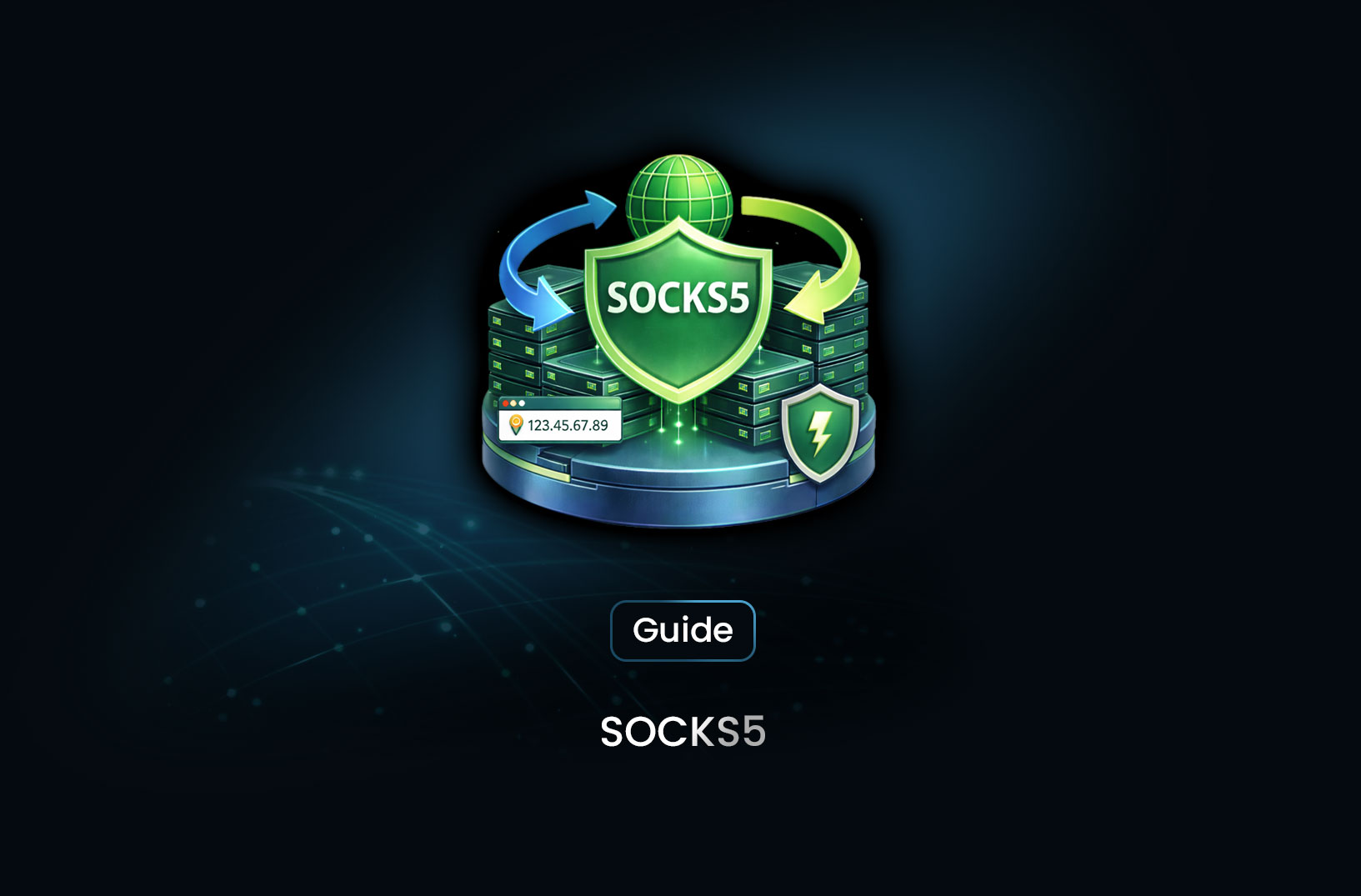
Using Proxy Chains to Increase Scraping Anonymity
GuideLearn how to use proxy chains to enhance anonymity in web scraping. Discover how routing requests through multiple proxies helps bypass anti-bot measures and prevents detection. Implement proxy chaining in Python, cURL, and Tor for secure and effective data scraping.
When web scraping, using a single proxy may not always be enough to maintain anonymity. Proxy chains, which route traffic through multiple proxies, add extra layers of obfuscation and reduce the chances of detection and blocking. This technique is especially useful when scraping sensitive data or bypassing aggressive anti-bot mechanisms.
Use Case: Scraping Without Detection for Market Research
A market research company needs to scrape competitor data without revealing its real IP. Using proxy chains, it routes requests through multiple proxies to ensure maximum anonymity and avoid detection.
How Proxy Chains Work
Proxy chaining involves passing a request through multiple proxies before reaching the target website. Each proxy in the chain masks the previous proxy’s IP, making it harder for websites to track and block the original source.
Example Flow of a Proxy Chain
Your Scraper → Proxy 1 (US IP) → Proxy 2 (UK IP) → Proxy 3 (Germany IP) → Target Website
Setting Up a Proxy Chain
1. Selecting Proxies for Chaining
Use a mix of:
- Residential proxies for legitimacy
- Datacenter proxies for speed
- SOCKS5 proxies for extra security
2. Configuring a Proxy Chain with cURL
Use cURL to route traffic through multiple proxies:
curl -x socks5://proxy1:port -x socks5://proxy2:port -x socks5://proxy3:port https://example.com
This routes traffic through three proxies before reaching the target site.
3. Using Proxy Chains in Python
With the PySocks library, you can create a SOCKS5 proxy chain:
import socks
import socket
import requests
# Set up SOCKS5 proxy
socks.set_default_proxy(socks.SOCKS5, "proxy1.com", 1080)
socket.socket = socks.socksocket
# First proxy request
response = requests.get("http://proxy2.com:port")
# Use the second proxy to forward the request
socks.set_default_proxy(socks.SOCKS5, "proxy2.com", 1080)
socket.socket = socks.socksocket
# Final request to target website
response = requests.get("https://example.com")
print(response.text)
4. Rotating Proxies for Additional Anonymity
To make proxy chains even more effective, rotate proxies at intervals to prevent detection.
import random
proxy_list = ["proxy1:port", "proxy2:port", "proxy3:port"]
selected_proxies = random.sample(proxy_list, 2)
socks.set_default_proxy(socks.SOCKS5, selected_proxies[0].split(":")[0], int(selected_proxies[0].split(":")[1]))
socket.socket = socks.socksocket
5. Using Tor as a Proxy Chain
Tor automatically routes traffic through multiple relays, creating a proxy chain.
Start Tor and configure it in Python:
proxy = {"http": "socks5h://127.0.0.1:9050", "https": "socks5h://127.0.0.1:9050"}
response = requests.get("https://check.torproject.org", proxies=proxy)
print(response.text)
Conclusion
Using proxy chains significantly increases anonymity when scraping by routing requests through multiple IPs. This method is useful for bypassing strict anti-bot mechanisms and protecting identity.
For a hassle-free scraping experience with built-in proxy rotation and anonymity, consider using Mrscraper.com to manage proxy chaining automatically.
Find more insights here

How to Use a SOCKS5 Proxy Server
A SOCKS5 proxy is simply a piece of infrastructure that sits between your device and the internet an...
.jpg)
Spotify Profiles Search Scraper: How It Works and Why Developers Use It
Unlock music market insights by scraping Spotify user profiles. Learn the best tools for keyword-bas...

Facebook Marketplace API: What Developers Need to Know in 2026
Learn why Meta doesn't offer a public endpoint and discover the 3 best ways developers programmatica...
